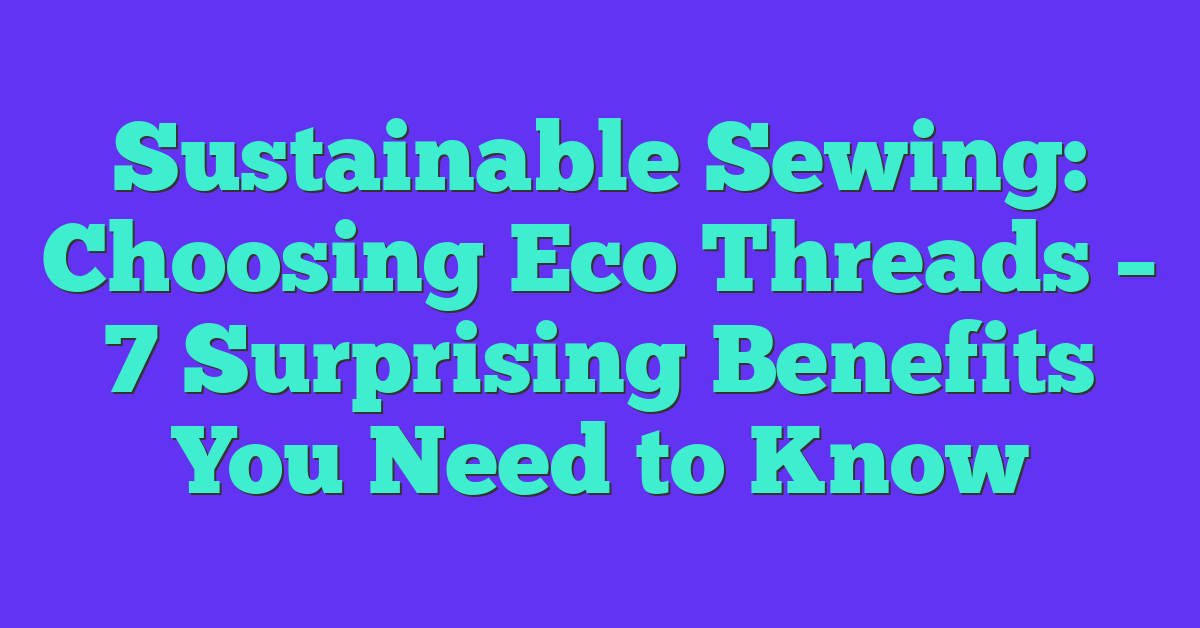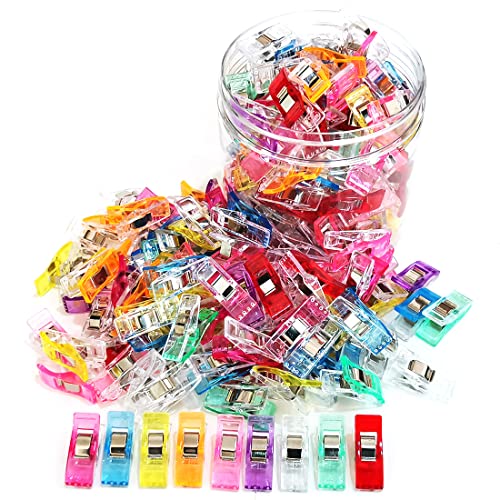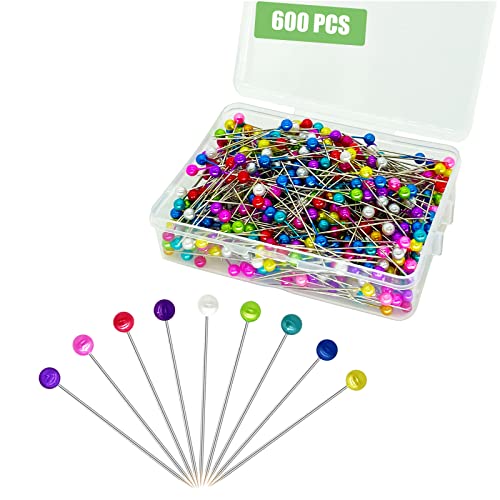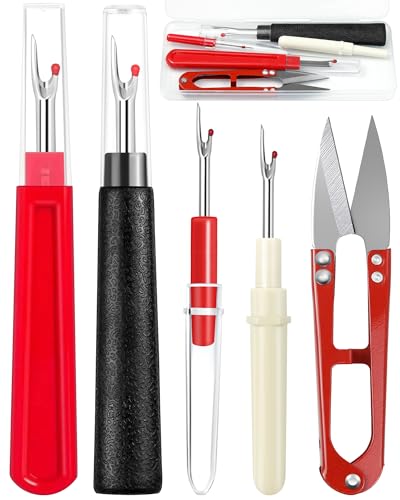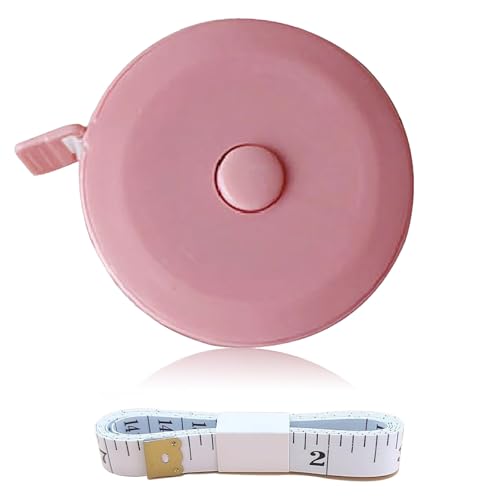Sustainable sewing is more than a trend—it’s a meaningful way to make a positive impact on the environment. When you choose eco threads, you’re not just creating beautiful garments you’re also supporting practices that protect our planet.
Imagine your sewing projects made with materials that reduce waste and lower carbon footprints. From organic cotton to recycled fibers the options are diverse and stylish. By selecting eco-friendly threads you take a step towards a greener wardrobe and a healthier world.
Join the movement of mindful makers who prioritize sustainability in every stitch. Your choices matter and with the right threads you can sew a brighter future for yourself and generations to come.
Understanding Sustainable Sewing
Sustainable sewing reduces environmental impact while creating quality garments. By integrating eco threads, you support a greener textile industry.
Importance of Choosing Eco Threads
Choosing eco threads promotes environmental sustainability and supports ethical manufacturing practices. Eco threads minimize waste, lower carbon emissions, and conserve natural resources, ensuring a healthier planet.
- Reduced Waste: Eco threads are often made from recycled materials, decreasing landfill contributions.
- Lower Carbon Footprint: Manufacturing processes for eco threads emit fewer greenhouse gases.
- Resource Conservation: Using sustainable fibers preserves water and energy resources.
- Ethical Production: Eco thread producers adhere to fair labor practices and responsible sourcing.
Environmental Impact of Traditional Threads
Traditional threads contribute significantly to environmental degradation through resource-intensive production and pollution. Conventional threads utilize non-renewable materials, generate high emissions, and often involve harmful chemicals, harming ecosystems and human health.
- High Carbon Emissions: Traditional thread production releases substantial CO₂ into the atmosphere.
- Non-Renewable Resources: Conventional threads rely on petroleum-based fibers, depleting natural reserves.
- Chemical Pollution: Processing traditional threads involves toxic chemicals that contaminate water sources.
- Energy Consumption: Manufacturing traditional threads demands extensive energy, increasing overall environmental strain.
Types of Eco-Friendly Threads
Choosing the right eco-friendly thread enhances your sustainable sewing projects. Here are the top options to consider:
Organic Cotton Threads
Organic cotton threads are produced without synthetic pesticides or fertilizers, ensuring a lower environmental impact. They offer several benefits:
- Biodegradable: Breaks down naturally, reducing waste.
- Soft Texture: Ideal for garments and delicate fabrics.
- Durable Strength: Resists wear and tear, extending the life of your projects.
- Chemical-Free: Minimizes exposure to harmful substances during production.
Organic cotton threads support sustainable farming practices, conserving water and promoting soil health. They are perfect for sewing organic cotton fabrics, quilts, and eco-friendly clothing.
Recycled Polyester Threads
Recycled polyester threads utilize post-consumer plastic waste, transforming it into high-quality thread. Key advantages include:
- Reduced Waste: Diverts plastics from landfills and oceans.
- Energy Efficient: Requires less energy to produce compared to virgin polyester.
- Strong and Versatile: Suitable for a wide range of sewing applications, including upholstery and outdoor gear.
- Low Carbon Footprint: Decreases overall greenhouse gas emissions.
These threads help conserve natural resources by repurposing existing materials. Recycled polyester threads are excellent for projects that demand durability and sustainability, making them a smart choice for environmentally conscious sewists.
How to Select the Right Eco Thread
Choosing the right eco thread enhances your sustainable sewing projects. It ensures longevity and compatibility with your materials.
Assessing Quality and Durability
Evaluate thread strength by checking tensile strength ratings, typically measured in grams. High-quality eco threads withstand stress and prevent breakage. Examine fiber composition; organic cotton offers softness and biodegradability, while recycled polyester provides durability and elasticity. Assess colorfastness to ensure threads maintain hue after washing. Review manufacturer certifications, such as GOTS or OEKO-TEX, to verify environmental standards.
Matching Threads to Your Project
Select thread type based on fabric and project requirements. For lightweight fabrics like silk or organic cotton, use fine threads to prevent puckering. Choose polyester threads for heavy-duty items like denim or upholstery due to their strength. Consider thread thickness; finer threads offer subtlety for delicate embroidery, while thicker threads provide visibility and texture. Match thread color precisely to your fabric by using color charts or samples. Ensure thread compatibility with sewing machines, opting for low-twist threads for smooth machine operation.
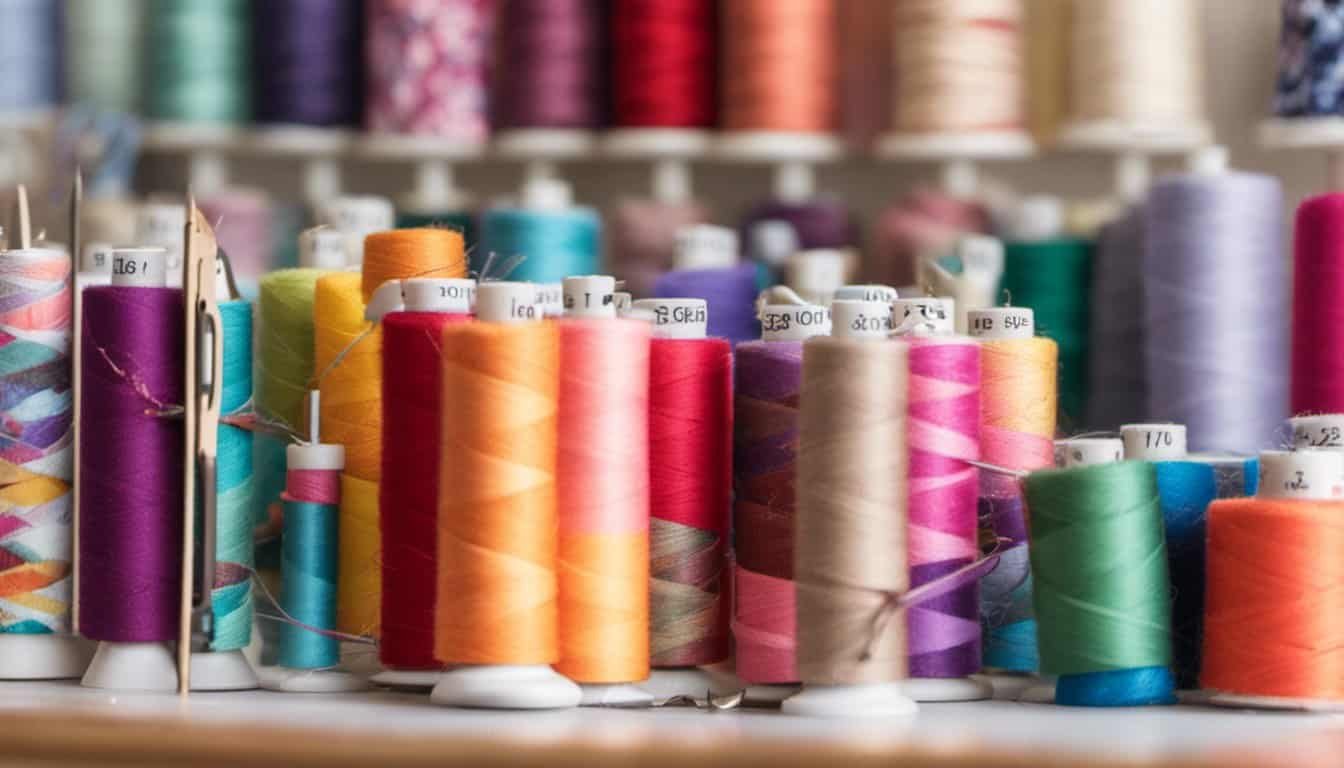
Benefits of Using Eco Threads
Choosing eco threads transforms your sewing projects into sustainable endeavors. These threads offer multiple advantages that support both the environment and your craftsmanship.
Reducing Your Carbon Footprint
Eco threads significantly lower your carbon footprint by utilizing renewable resources and sustainable production methods. For instance, recycled polyester threads repurpose plastic waste, decreasing the need for new petroleum-based materials. Additionally, organic cotton threads are grown without synthetic fertilizers, which reduces greenhouse gas emissions associated with conventional farming. By selecting eco-friendly threads, you contribute to reduced carbon emissions and support practices that minimize environmental impact.
Enhancing Product Sustainability
Using eco threads enhances the sustainability of your finished products through increased durability and biodegradability. High-quality eco threads, such as those made from organic cotton or recycled fibers, ensure your garments and crafts last longer, reducing the frequency of replacements. Furthermore, biodegradable threads break down naturally, lessening waste in landfills and minimizing long-term environmental harm. These sustainable qualities not only improve the lifespan of your creations but also promote responsible consumption and waste management.
Where to Purchase Sustainable Threads
Finding the right sources for eco-friendly threads supports your sustainable sewing projects. Explore reliable options both online and locally.
Online Retailers
Online platforms offer a wide selection of sustainable threads, providing convenience and variety.
- Specialized Stores: Websites like EcoThreads and GreenStitch focus exclusively on eco-friendly options.
- Major Retailers: Amazon and Etsy feature numerous sustainable thread brands, allowing easy comparison.
- Subscription Services: ThreadClub delivers curated eco-friendly threads to your doorstep regularly.
Local Fabric Stores
« How to Sew Warm Hats for the Homeless: Transform Lives with These Easy Steps
Fixing a Crooked Hem: 7 Quick Solutions You Need to Try Today »
Local fabric shops provide hands-on experience and personalized assistance when choosing sustainable threads.
- Eco-Friendly Sections: Stores such as Joann Fabrics and Michaels dedicate sections to organic and recycled threads.
- Community Markets: Local artisans at farmers’ markets or craft fairs often offer sustainable thread options.
- Workshops and Classes: Participating in sewing classes can connect you with suppliers and knowledgeable vendors.
Conclusion
Embracing sustainable sewing opens up a world where your creativity meets eco-conscious choices. By choosing eco threads you’re making a positive impact on the environment and supporting ethical practices. Every project you undertake helps reduce waste and conserve natural resources. You’re not just creating beautiful garments you’re contributing to a healthier planet. Keep exploring and making mindful choices knowing that your passion for sewing can make a real difference. Together we can build a more sustainable future one stitch at a time

